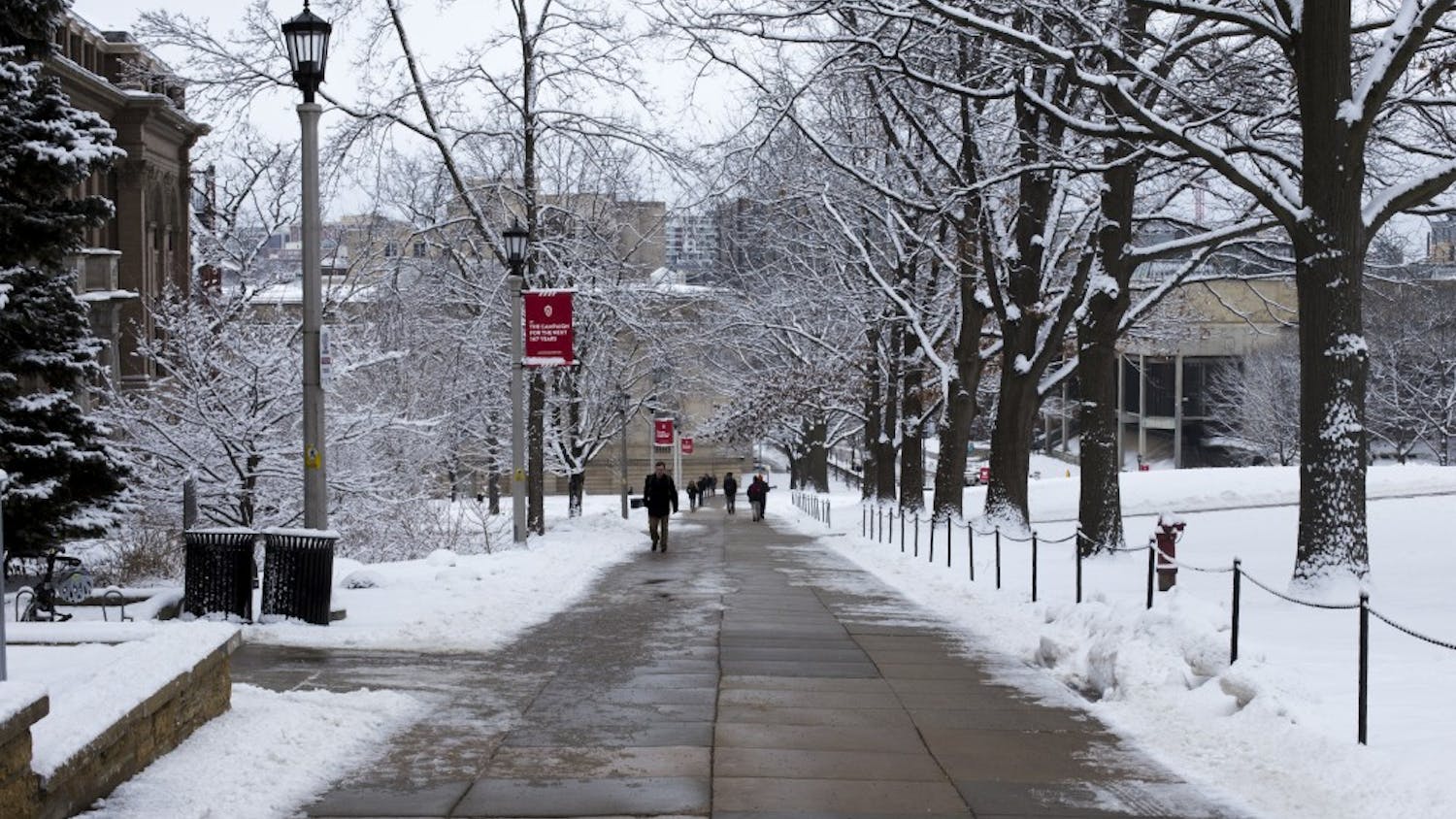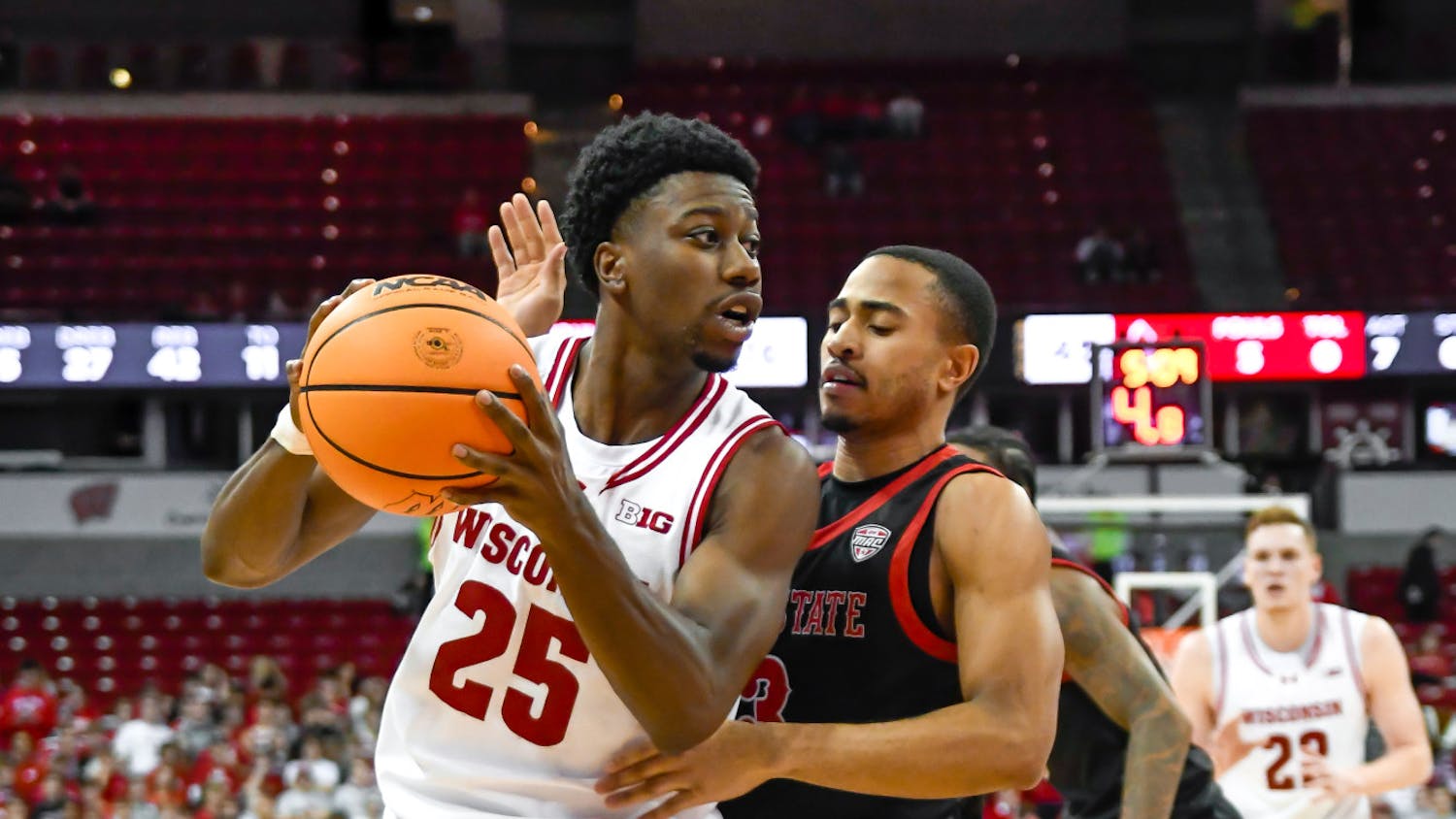Student sustainability leaders want to increase awareness and advocacy for environmental issues by introducing a mandatory Canvas course on sustainability for first-year students at the University of Wisconsin-Madison campus.
The proposed Canvas course would introduce students to sustainability practices on campus, educate them on UW-Madison’s Indigenous and environmental history and provide resources for further involvement.
The course would join a suite of required first-year introduction courses on diversity, equity and inclusion, alcohol safety, and sexual and relationship violence prevention.
“The next thing that needs to be established in this list is sustainability, because we are currently destroying the earth,” said Anna Silverman, Associated Students of Madison (ASM) Sustainability committee co-coordinator and co-lead of the Sustainability in Academics campaign.
The course would benefit students with different levels of sustainability education and interest, according to Hannah Stahmann, committee co-coordinator.
“There are many students that know the environmental impacts of what they do and don’t care, and there are also a lot that don’t know what they can do,” Stahmann said.
Most students currently engaging in courses on climate change and sustainability are those already interested in it, said Mark Johnson, UW-Madison teaching faculty in the Department of Educational Policy Studies.
That means “little progress” is being made to connect with those unaware — or skeptical — of the climate crisis and sustainability concerns, something Johnson said reinforces existing attitudes on the topic.
Johnson said David Barbier, sustainability coordinator at UW-Stevens Point, presented evidence the UW System is losing students to places like Minnesota and Michigan because those institutions prioritize sustainability in an April 2022 Board of Regents Meeting.
Barbier said 78% of students nationwide say a university’s environmental commitment contributes “somewhat, very much, or strongly” to their school choice, up from 63% in 2018, according to a 2021 survey by The Princeton Review.
This could make sustainability education an important issue for UW administration, especially when enrollment is down on some UW campuses, he added.
“They took that very seriously,” he said. “The State of Wisconsin is getting older. The demography is kind of working against us as really talented young people are leaving.”
Other UW System schools have various climate education requirements. UW-Stout established a faculty sustainability course, UW-Eau Claire implemented an optional introductory Canvas course in fall of 2023, and UW-Green Bay has a general sustainability education requirement similar to UW-Madison’s ethnic studies requirement.
Student and faculty sustainability leaders across UW campuses meet in a monthly “Sustainability in Academics” Zoom focus group.
A similar proposal was made by former ASM Sustainability member Katherine Ackley and Chair Natalie Tinsen three years ago, but the project never got off the ground, Tinsen said over email.
While the proposal was well-received in a meeting with UW officials, Tinsen said progress stalled as leaders waited for university approval.
What’s in the course?
On a practical level, the course teaches students to recycle and reduce waste, take public transportation and have a sustainable move-in when arriving on campus. The course also pushes students to reflect on their environmental impact by providing ecological and slavery footprint calculators.
Showing personal ties to the climate crisis is important, Silverman noted.
“People care more about something when it pertains directly to them and affects them,” Silverman said.
Leaders hope to keep this course short and effective, using videos and quizzes to maintain engagement. Making sure the project is “actionable” — taking inspiration from professor Wendy Jedlicka’s UW-Stout sustainability course — was a core component of the project, according to Silverman.
ASM leaders said they hope to bring more students into sustainability action on campus. The course includes opportunities for further education, giving information on the Office of Sustainability and Nelson Institute as well as degrees, certificates and courses related to climate and sustainability.
“It's a good way to get students motivated and aware right away when they arrive on campus,” Elizabeth Preboski, fellow co-lead said. “That way they're not getting into their junior year and just realizing, hey, sustainability is an issue.”
Johnson said there’s “actually tremendous student interest” in sustainability courses, many of which are waitlisted due to student demand.
Additionally, the course provides numerous applicable, career-focused options to involve students in campus sustainability organizations, alongside resources to find careers in sustainability.
“More and more jobs are embracing this kind of material and these kinds of themes,” Johnson said. “It’s happening all across almost every economic sector.”
Can change happen?
ASM Sustainability finalized the course draft over winter break and reached out to relevant professors for testing in the 2024-25 school year. They hope it will be a course for all freshmen in fall 2025.
However, the program may face an uphill battle to implementation despite support from some administrators, given past opposition to student sustainability education efforts.
Nine student sustainability advocates from campuses across Wisconsin presented their work at a Board of Regents meeting in December, including ASM Sustainability Chair Christina Treacy.
Johnson, who watched the meeting, said both university leaders and the Regents were appreciative and largely supportive of the students’ work.
Still, student leaders said they are frustrated with the administration relying on them for progress.
Silverman recounted an instance where Sean Nelson, UW System Vice President for Finance and Administration, told her “it is the student's responsibility to foster a culture of sustainability on campus,” at the UW System Sustainability Annual Meeting.
However, the majority of sustainability education progress made on other campuses happened from the top down, Silverman said, such as the faculty course at UW-Stout. Hearing Nelson’s response was frustrating, especially since student environmental activism is usually “bottom-up work,” Stahmann said.
“It feels like we’re just shouting into the void and nothing happens," Stahmann said. “The people at the top don’t want to listen.”
ASM leaders also advocated for a general sustainability requirement but were shot down by engineering department heads because “students are already going over their eight semesters,” according to Silverman.
“[UW-Madison] isn't jumping on these syllabi because that costs money and takes time,” she said. “It’s often not an administrative focus.”
The “touchy” political nature of environmental activism was another concern, Stahman said. UW-Madison doesn’t want to tell students to go out and do things that are “technically political,” she said, even if she believes environmentalism shouldn't intrinsically be a politicized issue.
Kelly Tyrrell, a UW-Madison spokesperson, said in response that Chancellor Jennifer Mnookin and other university leaders “have been engaged with students with respect to sustainability on campus, and in efforts to implement the best ways to raise awareness among and engage students.”
Tyrrell shared other ways to get involved in sustainability beyond online programs, including the Office of Sustainability, student organizations and the Green Fund, which awards money to student sustainability projects.
Mary Bosch is the college news editor and photo editor emeritus for The Daily Cardinal. She is a second year journalism and sociology student with a focus in data. Follow her on twitter: @Mary_Bosch6






